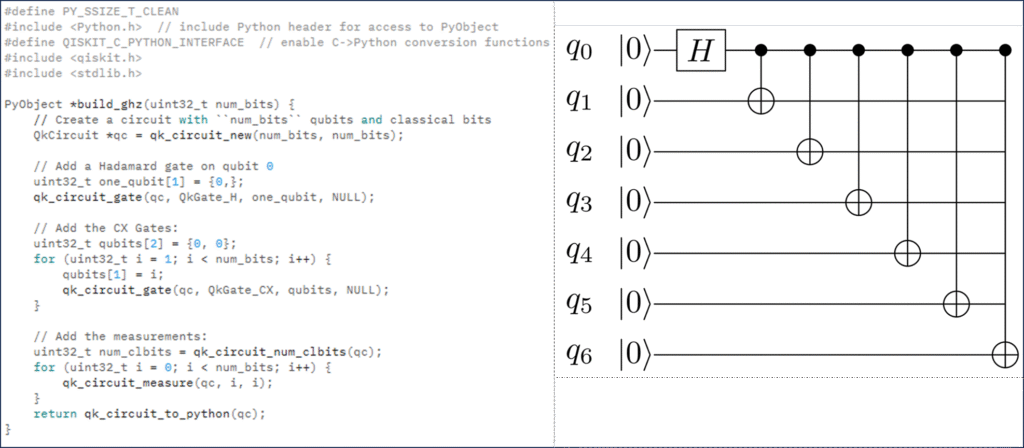IBM has issued a new minor release, version 2.1, to its Qiskit Software Development Platform. As mentioned in our earlier report last April with the release of Qiskit 2.0, IBM will continue evolve this software to provide additional functionality and performance to improve the user experience. Sometimes when new releases are provided, they will have incompatibilities with application programs originally developed under an older version of Qiskit. However, IBM has indicated that this will not happen when there is a minor update such as this upgrade from 2.0 to 2.1.
A key new feature in this release is the extension of Qiskit’s C API support. This will allow users to build quantum circuits and targets using a C API and enable better integration with HPC systems that commonly use C, C++, and the Fortran languages. A user will be able to build a circuit in C and then pass it back to Python using a built-in qk_circuit_to_python() function for operation with the rest of the Qiskit platform.
The transpiler in Qiskit was made more efficient by a capability of recognizing circuits comprised solely of Clifford+T gates so that appropriate passes for handling these gates are added to the preset pass managers. Qiskit also has additional transpiler improvements that reduce gate counts and circuit depths including tools for tools for better synthesis of multi-controlled gates. In addition, a particular transpiler pass that decomposes arbitrary single-qubit gates into a set of fixed single-qubit gates has been rewritten into the Rust language to provide a significant improvement in runtime performance. Additional enhancements include adding the capability to attach custom annotations to BoxOp instructions, a new synthesis algorithm for a Half Adder Gate, and other new features.
For more about these changes to Qiskit, you can visit a blog post describing some of the new features here and also access the Qiskit SKD 2.1 release notes here.
July 5, 2025
